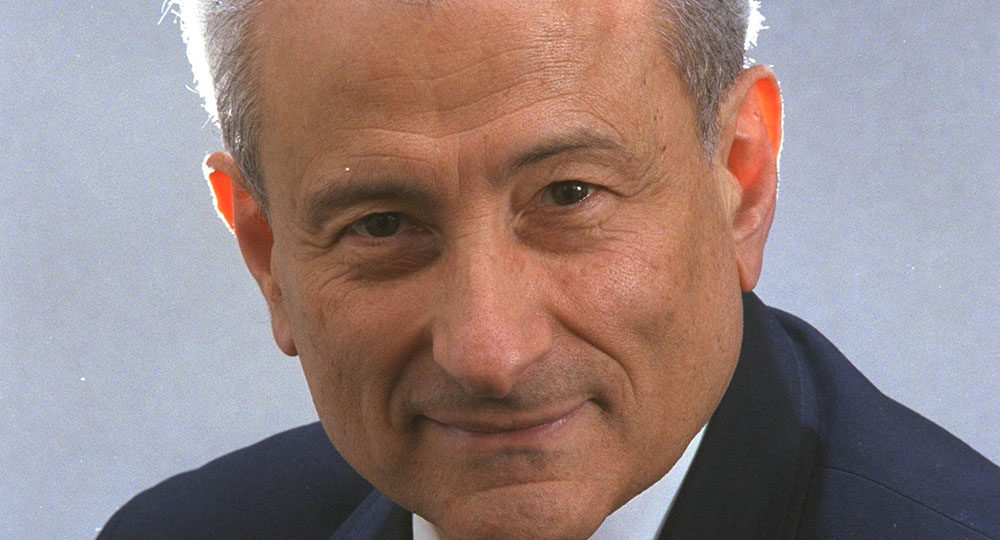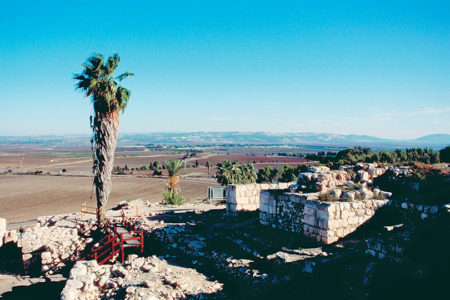An Interview with David Bar-Illan
In 1998 David Bar-Illan was the policy and planning director for the administration of Prime Minister Benjamin Netanyahu in Israel. He also was a primary spokesman for the prime minister. Below are portions of an interview Elwood McQuaid conducted then with Mr. Bar-Illan, whose brilliant insight and consistent courage will be sorely missed.
EMQ: The two words that we are hearing consistently from Mr. Netanyahu and yourself are security and reciprocity. You’ve talked about security, but many people do not seem to understand why this insistence in the absolute of reciprocity.
DB: That’s precisely what is at issue. If the Palestinian state is created and remains dedicated to destroying the State of Israel, then we are allowing an entity to become dangerous to us. As I said before, they are right across the street from us. Our country is very small—about the size of New Jersey. It is totally unacceptable to have in our midst a fully sovereign state that can develop a large army and equip it with heavy weapons, tanks, planes, and canons, not to mention nonconventional arms.
A sovereign entity that can make pacts with such regimes as Iraq and Iran, which are avowedly dedicated to the destruction of Israel, must not be allowed to be our neighbor. It is like allowing a fifth column, a Trojan horse, to grow up among us without any kind of control. Such a state would be able to regulate our water sources and invade our air space. It would be impossible to insure Israel’s survival under such circumstances. So we want the Palestinian entity to become as independent as possible, as long as it does not threaten our security.
EMQ: What impact do you think it would have on the peace process if the United States carried through on the decision of the Congress to move its embassy to Jerusalem? Would it make a difference in the peace process? How important is this embassy matter after all?
DB: It’s extremely important. First of all, it is really quite disconcerting that it hasn’t been done already. Did you know that Israel is the only country in the world that doesn’t seem to be able to designate its own capital? In every other nation, the American embassy is located in the capital designated by that country. Our capital is Jerusalem. It has not been a capital of any other nation for the past 3,000 years. For the past 3,000 years it has only been the capital of the Jewish people. Even when they did not have sovereignty or control over the area, they considered Jerusalem their only capital. In fact, there is no parallel in his- tory to the attachment between the Jewish people and Jerusalem.
From a purely political point of view, it would be advisable to move the American embassy to Jerusalem. We are never going to give up Jerusalem as our capital. There is practically a wall-to-wall consensus on this in Israel. We are never going to allow the city to be divided. It is going to stay the undivided capital of Israel for all time. The sooner the United States recognizes this as a fact and moves the embassy, the sooner this sore point will disappear.
Moreover, as long as the United States does not move the embassy to Jerusalem, the Palestinians will continue to nurse the hope that they will be able to acquire half of the city and make it their own capital, even though it’s never been either a Muslim capital, an Arab capital, or anything like that. As long as the United States does not move the embassy, this kind of hope can be nurtured and will remain a source of irritation and conflict. It would be better for everyone concerned for the embassy to be moved and for the facts of life to be made clear, so that we can move on from there with a realistic approach to other problems.
EMQ: It’s been my opinion from the beginning, David—and I’d like your comment on this—that moving the embassy would really strengthen and buttress the peace process, rather than detract from it. Is that a fair assessment?
DB: Absolutely. There is no question that it will reinforce what is already a fact on the ground. American recognition of that fact will make it much easier for us to proceed. As long as there is doubt, and as long as there is false hope about the future of Jerusalem, it is difficult to make progress. As soon as that false hope disappears and the facts are recognized by the United States, progress will be possible.
EMQ: Having said that, I have one last question: Where do we go from here?
DB: There are two possible scenarios. If the Palestinians really live up to their obligations, if there is compliance on their part and reciprocity, if they particularly fulfill the commitment to fight terrorism and, in fact, to abolish the covenant that calls for Israel’s destruction, there is a very good chance that we will be able to reach a peaceful arrangement.
If, on the other hand, they continue to ignore these obligations or just pretend to discharge them and “make believe” rather than act upon the commitments they have made, the chances for real peace are slim. At this point, I can’t say for sure which scenario is more likely. But of course, living in the Middle East, we are all optimists by nature; otherwise, it would be very difficult to live here. Our first prime minister, David Ben-Gurion, said, “Anyone who doesn’t believe in miracles in the Middle East is not a realist.”







